Pompeo faces big challenges at State Department
Pompeo has the advantage of agreeing with Trump on key issues.
President Donald Trump's sudden firing of Secretary of State Rex Tillerson has unnerved many at the State Department and raised questions about what comes next for U.S. foreign policy.
But with CIA director Mike Pompeo nominated as his replacement, there are clues about where the administration is heading.
Pompeo, however, faces enormous challenges: getting the department's house in order after Tillerson's attempt to "redesign" it that has left top positions vacant and senior diplomats departing, and working for a president who has changed foreign policy with a tweet and sees himself as the most important U.S. diplomat.
In Pompeo's favor, and unlike Tillerson, he has a strong relationship with Trump, agrees with him on key issues and after six years in Congress and one at CIA headquarters in Langley, Va., he knows the ways of Washington.
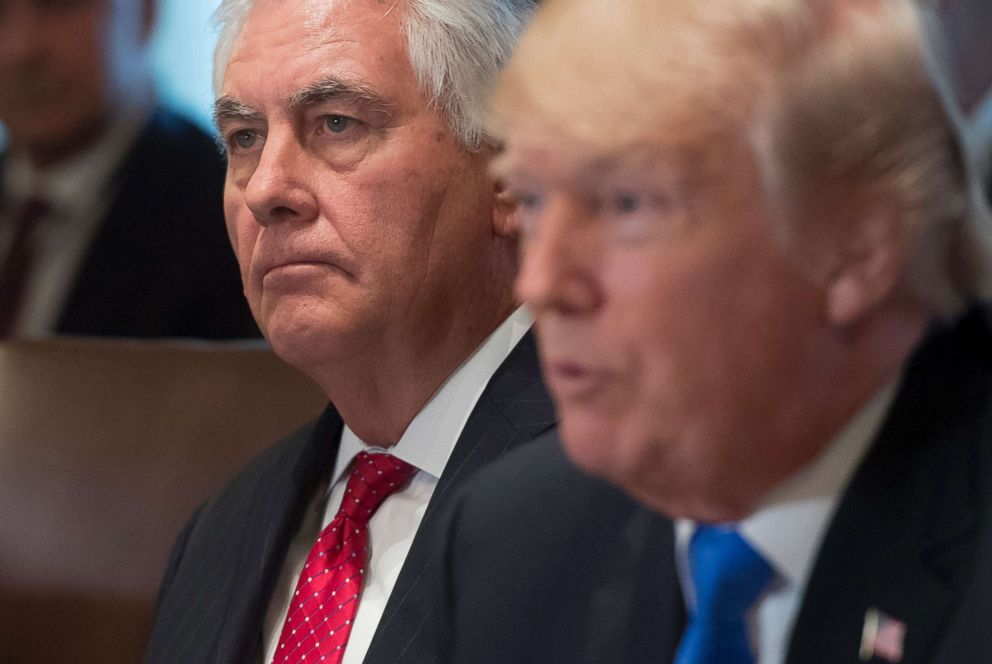
Here are the most important issues he'll face if the Senate confirms him as Trump's second secretary of state.
DEALING WITH NUCLEAR DEALS
The Trump administration is hurtling towards two nuclear crises, with North Korea and Iran, and Pompeo will be at the center of both.
After disparaging talks and warning that North Korea could not be trusted, Trump reversed course last Thursday and accepted an invitation to meet with Kim Jong Un, extended by the South Korean delegation that had visited the dictator days earlier.
"North Korea is going to go very well and promised they wouldn't be shooting off missiles in the meantime, and they're looking to denuke, and that would be great," the president told reporters at the White House Saturday.
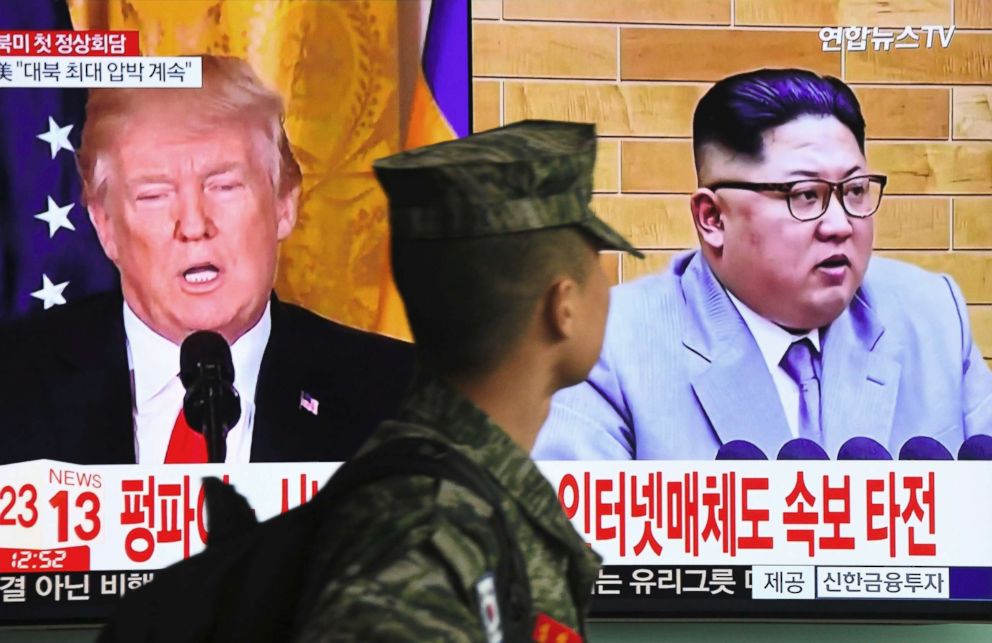
While Tillerson had advocated for "talks about talks" and an ultimate diplomatic solution, Pompeo has been more skeptical of North Korea's willingness to negotiate in good faith or give up its nuclear weapons entirely.
The CIA "need[s] to make sure that we can inform the president of the history of deceit of this regime, where they have committed to things in the agreed framework and then subsequently. We need to make sure that we go into this discussion understanding those risks," Pompeo said Sunday on "Fox News Sunday," before news of his potential new role was announced. After "previous failed negotiations," he said on CBS's "Face The Nation," "The CIA won't make those mistakes again."
Even if Trump and Kim do meet in May, the administration will also hit a self-imposed deadline on the Iran nuclear deal. By May 12, Trump must re-sign waivers on sanctions against Iran to keep the deal in place or let them lapse and destroy the agreement; he said he would not sign unless European partners worked with the U.S. to address Iran's ballistic missile program and "malign" behavior in the region.
Tillerson had long argued to Trump to keep the deal in place and had dispatched top aide Brian Hook to Berlin this week for a third meeting with France, Germany, and the United Kingdom about a side agreement on ballistic missiles. But his position infuriated his boss, who cited their disagreement on the day he was fired. "I wanted to either break it or do something, and he felt a little bit differently," Trump said of Tillerson Tuesday.
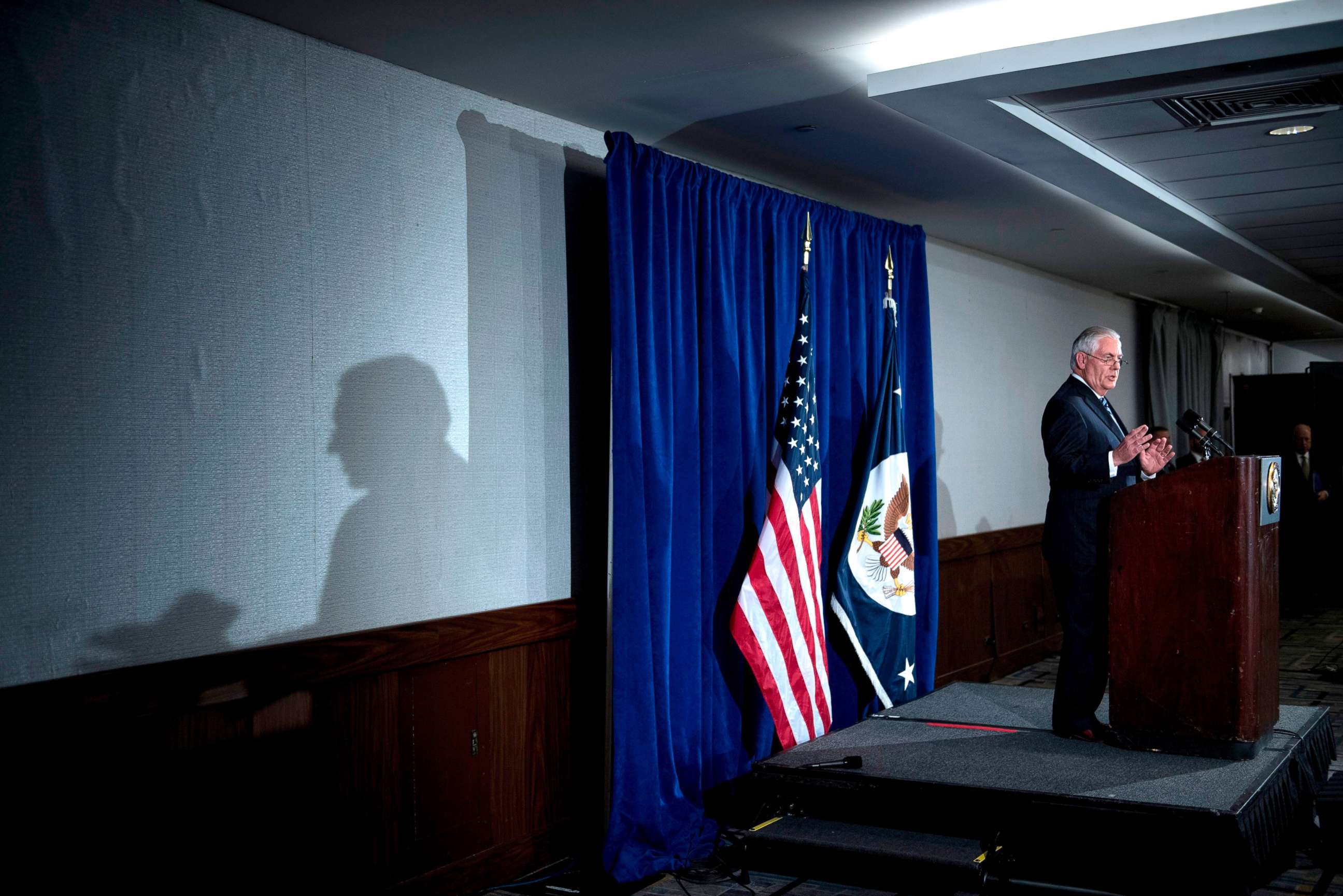
In contrast, Pompeo has been a strong opponent of the nuclear deal. As a congressman, ahead of Trump's election, he wrote an op-ed on the deal's first anniversary in July 2016 calling on the Obama administration to "do what is best for the U.S. and walk away from this deal."
Pompeo has been more tight-lipped about what to do with the deal since becoming CIA director, but he is still a vocal opponent of Iran's behavior elsewhere, bashing it as a "despotic theocracy" and "pernicious empire that is expanding its power and influence across the Middle East" in October. His hawkish views have prompted one Republican senator to oppose his nomination, Sen. Rand Paul of Kentucky.
His selection for secretary of state even led Iranian media like the hardliner daily newspaper Javad to predict the deal would eventually die, according to the Associated Press.
RESPONDING TO RUSSIAN AGGRESSION
Confronting Russia's aggression was one of the last things Tillerson warned of as secretary of state. On his flight back from Nigeria Monday night, he told reporters, "I've become extremely concerned about Russia... There seems to be a certain unleashing of activity that we don't fully understand what the objective behind that is." In particular, he referenced the poisoning of an ex-Russian spy in London, which the British government has blamed on Russia - an assessment U.S. intelligence shares.
Pompeo shares that concern: "This administration is deeply aware that we need to continue to push back against the Russians everywhere we find them," he told a Washington audience in January.
But while he's talked tough on Russian influence abroad, he has defended some of Trump's arguments about Russian interference at home.
"The intelligence community's assessment is that the Russian meddling that took place did not affect the outcome of the election," Pompeo said in October. A CIA spokesperson had to correct him the next day, saying Pompeo misspoke: "The intelligence assessment with regard to Russian election meddling has not changed, and the Director did not intend to suggest that it had."
He's also downplayed the significance of Russia's interference historically, telling Fox News on Sunday, "There’s a long history of Russian efforts to influence the United States."
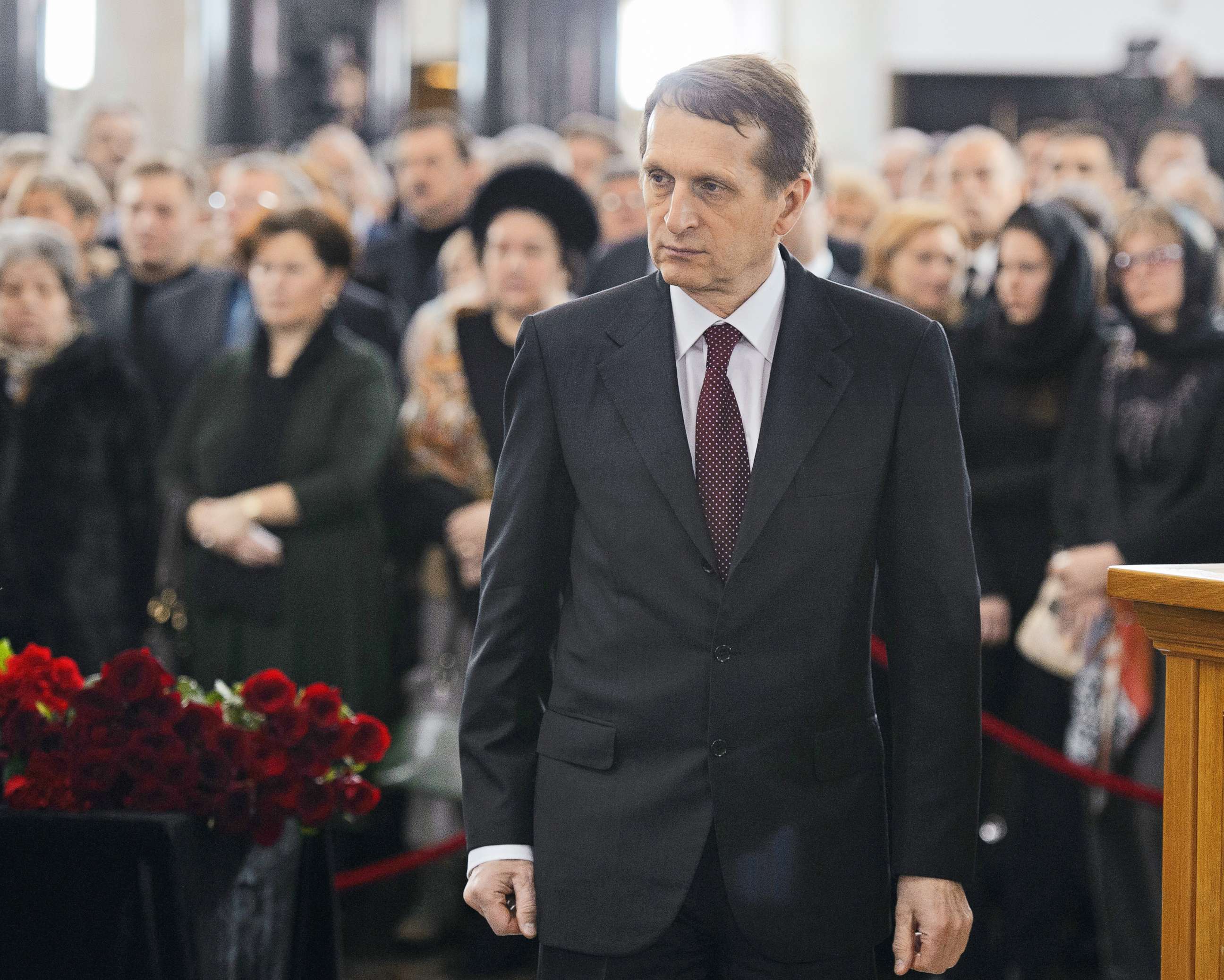
Democrats also have lingering questions about Pompeo's meeting with Russia's spy chief in January. The CIA has declined to confirm the meeting took place, but the Office of the Director of National Intelligence - which oversees the CIA - told Sen. Chuck Schumer, D-N.Y. York, the meeting was "to discuss issues of mutual national security interest regarding the shared global threat of terrorism."
In particular, the Russians thanked the U.S. for sharing intelligence that disrupted a potential terror attack in St. Petersburg, the DNI said, and the U.S. asked the Russians for greater help fighting ISIS; Pompeo argued they are "doing nothing to aid in the destruction and defeat of ISIS" during his confirmation hearing in 2017.
GETTING HIS HOUSE IN ORDER
Perhaps most important, Pompeo will have to deal with a State Department in disarray. Dozens of top positions are still unfilled, employees are still bristling about a hiring freeze and buy-outs meant to slim down the agency, and morale is low after Tillerson isolated himself with a small inner circle.
Many of those vacancies were because of White House opposition to Tillerson's personnel picks, even after Trump had reportedly guaranteed him the ability to choose his own people. While reform of the department - what Tillerson called the "redesign" and said was his most important project - was notching some small wins like IT and human resources changes, the project has stalled now that he is gone.
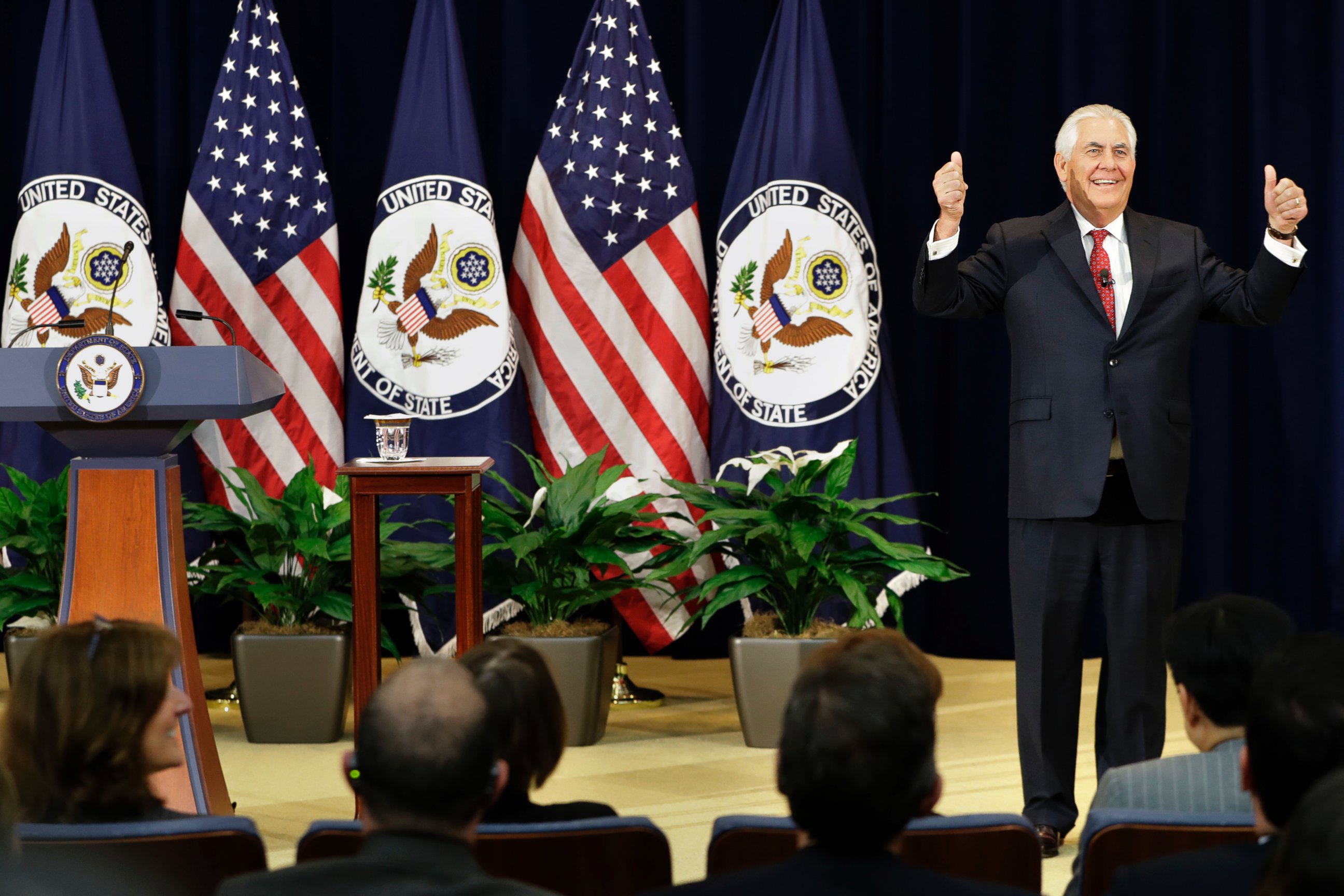
It's unclear if it will continue under Pompeo and in what form.
But because Pompeo has a stronger relationship with Trump and the White House, personnel picks may be easier. After several years in Washington, he also understands how the city's systems and relationships work better than the outsider Tillerson, a former CEO who operated in a very different way.
Still, Pompeo has expressed support for cuts to government bureaucracy, including at the State Department. "I'm someone who came from the policy world that always thought government could do better even with a little less of money and I still firmly believe that not only at the State Department, but at my agency too," he said last April in Washington.
While many State Department officials agree reform is needed and streamlining processes would be welcome, supporting the drastic cuts the Trump administration has called for in its budget proposals will win Pompeo little support among the rank and file - key to being successful at State.



